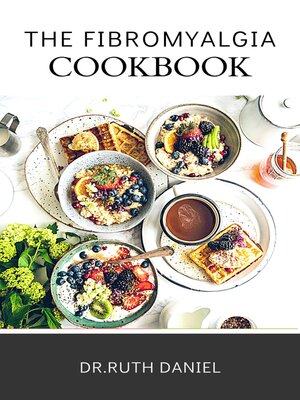The Fibromyalgia Cookbook
ebook ∣ Fibromyalgia Diet: Foods You Should Eat and Foods You Should Avoid
By Dr. Ruth Daniel

Sign up to save your library
With an OverDrive account, you can save your favorite libraries for at-a-glance information about availability. Find out more about OverDrive accounts.
Find this title in Libby, the library reading app by OverDrive.



Search for a digital library with this title
Title found at these libraries:
| Library Name | Distance |
|---|---|
| Loading... |
Fibromyalgia is a chronic, painful condition that affects the entire body. It's a musculoskeletal disorder that often affects sleep, memory, energy levels and mood. According to National Institutes of Health, approximately 5 million people – mostly women – have been diagnosed with fibromyalgia.
"Fibromyalgia" means pain of the muscles and connective tissue. However, this chronic pain disorder causes a wide variety of often debilitating symptoms, such as memory issues, muscle weakness and bowel disturbances. Treatment focuses on easing pain and improving quality of life, so a healthy, balanced diet is an important part of the overall lifestyle and treatment plan.
Evidence points to certain dietary approaches that may help manage its symptoms. These include
Low calorie diets. Weight loss may help with fibromyalgia symptoms, so a low calorie diet may be a good approach.
Vegetarian diets. These diets are rich in anti-inflammatory fruits, vegetables, nuts, and legumes. The strongest evidence is for raw vegetarian diets.
Low FODMAP diets. FODMAPS are types of carbs that some people can't digest. Low FODMAP diets exclude most dairy products, grains, fruits, and vegetables. It's a very restrictive, highly anti-inflammatory way of eating.
A diet high in anti-inflammatory foods may also help manage fibromyalgia symptoms, as chronic inflammation is one of the suspected causes of the disease.
Omega-3 fatty acids are lauded for their ability to improve heart health and reduce inflammation, and it's thought that this nutrient could also help reduce stiffness and soreness in people with fibromyalgia. You can find this healthy fat in certain fish like salmon, as well as some nuts and seeds.
READY TO DISCOVER MORE?
GRAB A COPY TODAY!







